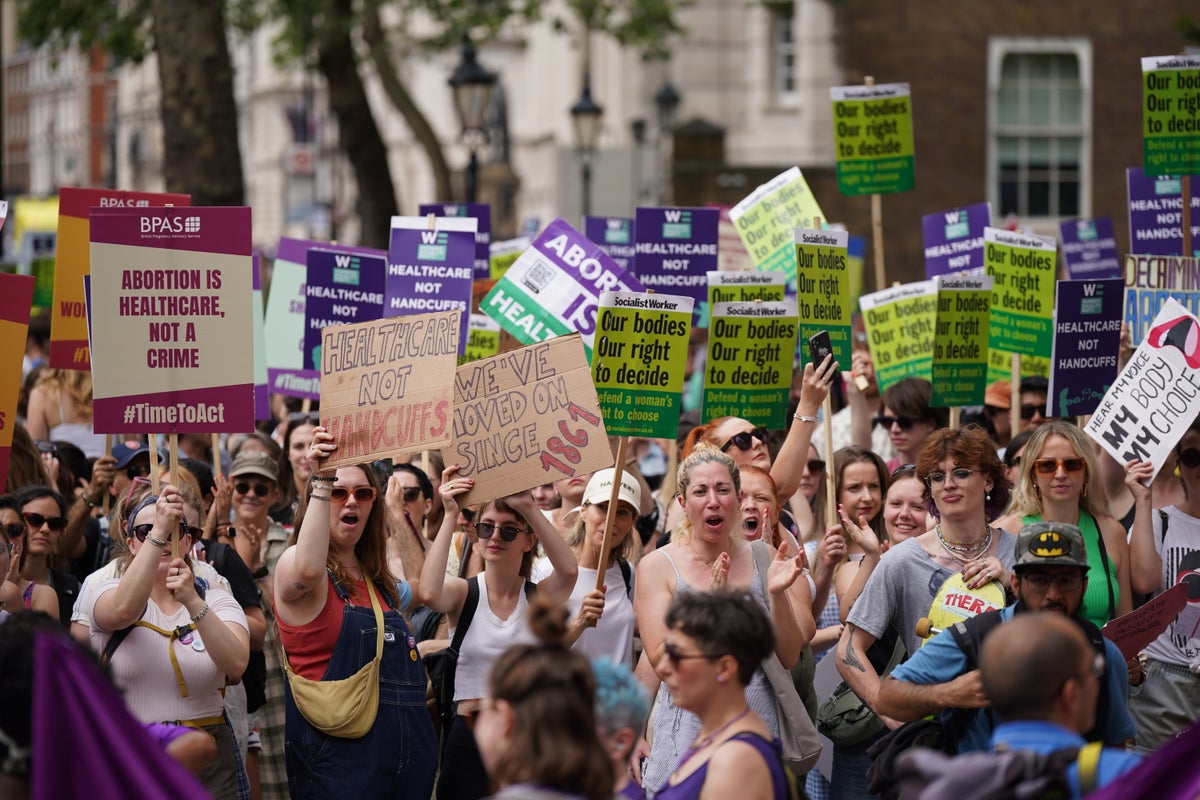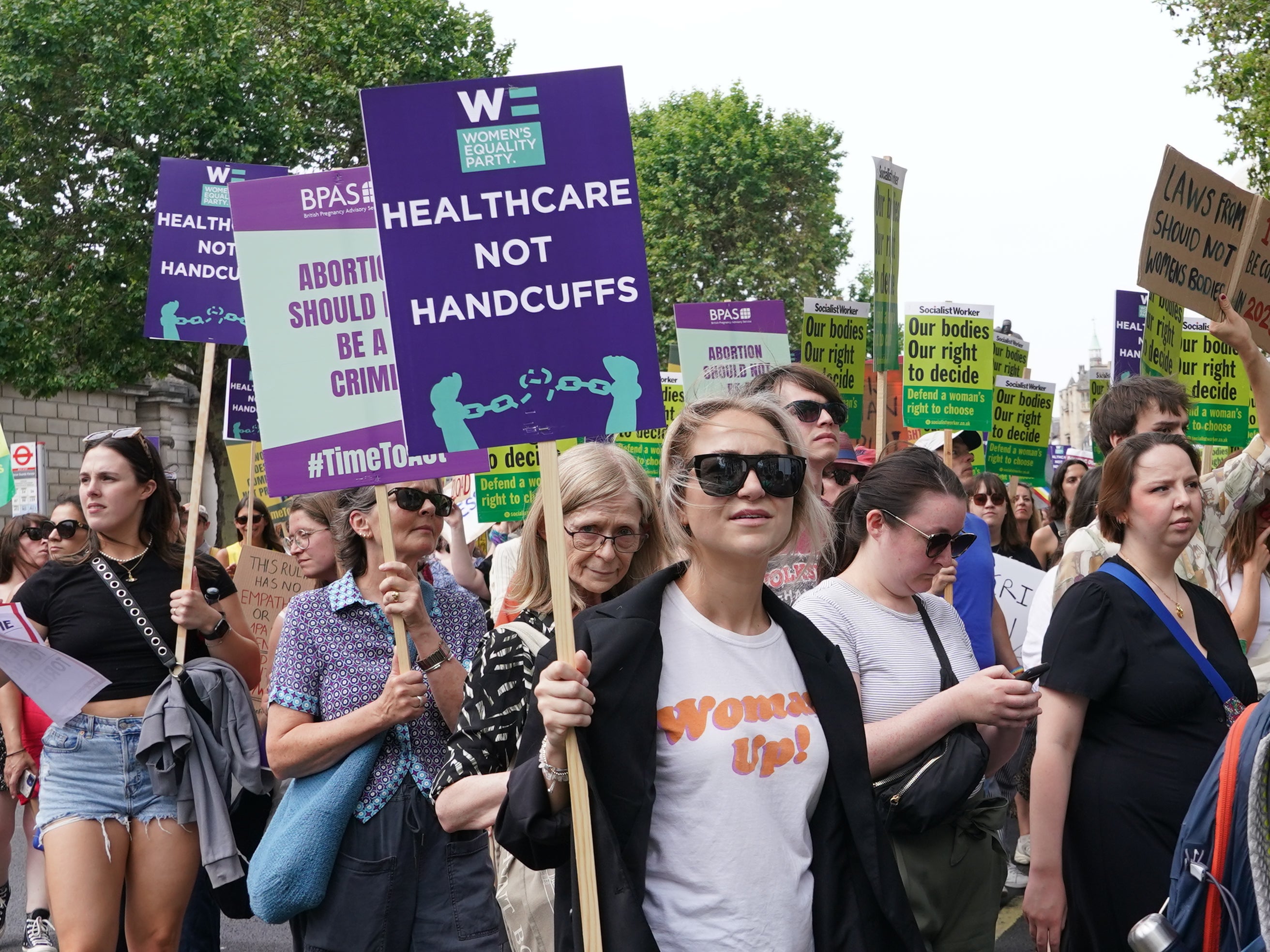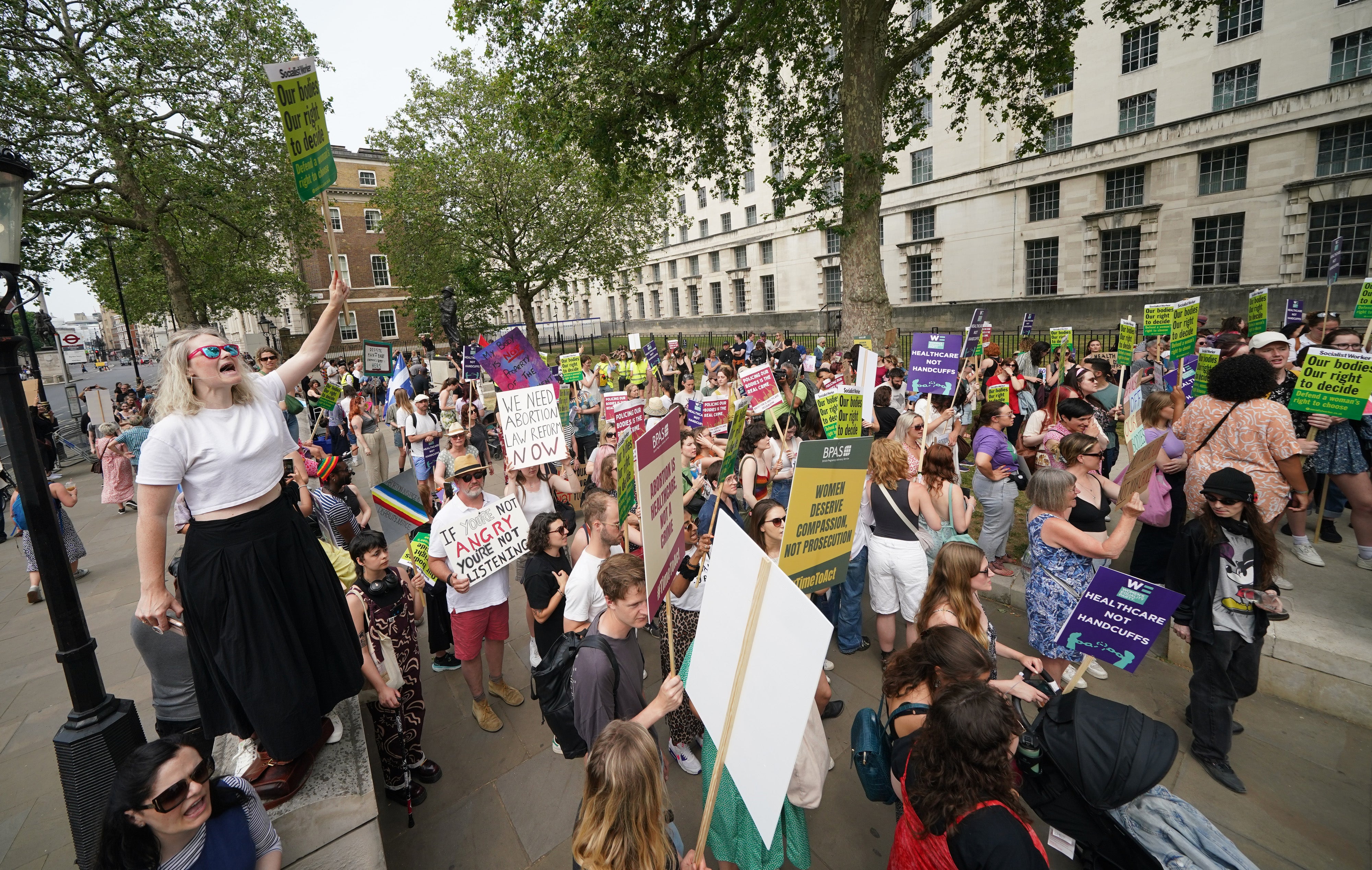
Thousands of protesters calling for the decriminalisation of abortion have marched in central London following outrage at the conviction of a woman for ending her pregnancy beyond the legal cut-off of 24 weeks.
Campaigners stressed that “abortion is healthcare, not a crime”, after Carla Foster, 44, was this week sentenced to 28 months in jail, having obtained drugs to end her pregnancy at 32 to 34 weeks during lockdown.
The mother-of-three got hold of the abortion pills under the government’s “pills by post” initiative rolled out in the wake of the Covid crisis, after lying to the British Pregnancy Advisory Service (BPAS) about how far along her pregnancy was in 2020.

Abortion providers, campaigners and politicians fiercely criticised the decision to jail her and called for abortion care in the UK to be immediately decriminalised.
Over 2,000 protesters turned out to demonstrate on Saturday, according to deputy leader of the Women’s Equality Party Tabitha Morton.
Having met at The Royal Courts of Justice and marched to Westminster for a rally, she told The Independent it was a day of “incredible energy” with a “wonderful turnout”, adding: “It was so good to see the public like passersby and tourists supporting and cheering us.”
It is crucial the message gets out that these “archaic” abortion laws are still in place, she said, referencing the 1861 legislation that states a woman attempting to end her own pregnancy outside a set of strict criteria can face up to life imprisonment, which was used to prosecute the mother-of-three. “You can’t help but feel angry. The court decided to rip a woman away from her children – who does that benefit? It reminded me that this is about controlling us and our bodies, it’s never about what’s best for the children.”

Describing emotions at the march as ranging from “angry to sad”, chair of the campaign group Abortion Rights, Kerry Abel, said: “I’m heartened people have come out. We need to stand up and fight back when these things happen. Prison time for someone who is managing their own pregnancy is something we have to come out for. Queen Victoria was reigning when that 1861 legislation was put into action. The sentencing does drip with misogyny.”
Citing the overturning of Roe v Wade in the US last year, which ended the federal constitutional right to abortion, Ms Abel echoed Ms Morton’s similar fears when she said: “Since then, we’ve been frightened there’ll be rollback here. I feel anxious there’s this rollback of abortion rights by stealth in the UK.
“Abortion is not something you can shove into the backstreets again. It will just be made much more dangerous.”
Before the Abortion Act was introduced in 1967, an underground network of backstreet abortionists ran quietly across the country as an estimated 100,000 women were forced to seek out unsafe, illegal abortions.
But, although an important and progressive step, the legislation still only allows abortions to be had up to 24 weeks and requires the sign-off of two doctors.
In light of the reality that one in three women in the UK will have an abortion in their lifetime, both Ms Morton and Ms Abel stressed “abortion is healthcare” and both are calling for its immediate and complete decriminalisation.
According to a YouGov survey, these calls have popular support, with nine in 10 UK adults believing women should be able to access abortion services in this country.
Ms Morton said the key is raising awareness of the law, but she said she is hopeful change is afoot, adding: “The one thing they can’t take away from us is our hope.”
Ms Abel said: “We have to keep coming out. There are more of us that need and want proper abortion law because it’s normal, it’s healthcare - it’s not a crime. We should not be policing people’s bodies.”







